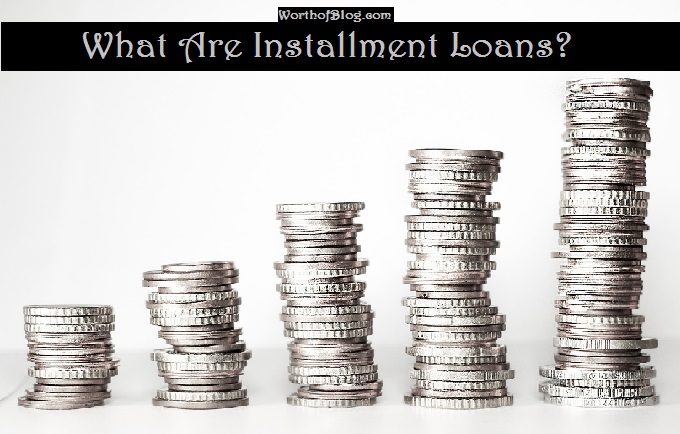What are installment loans, and what makes them different from other types of personal credit? Check out here all about installment loans.
As their name suggests, installment loans are a type of loan that you pay back in chunks. Installment loans are a type of loan that has a pre-determined length. You make payments at regular intervals throughout that period, usually monthly or biweekly.
Understanding how installment loans work, and the pros and cons that they offer you can help you decide if they are the right form of borrowing for your financial needs.
What Are Installment Loans?
As they come with a predetermined rate and length, installment loans represent a predictable expense. While there are many different types of installment loans, the most common are car loans, mortgages, and student loans.
The interest rate that bank charges for an installment loan will depend on the type of loan, as well as your credit score. You can read here about applying for installment loans with a bad credit score. If your credit score is very poor, you may not be able to access installment loans at all.
Banks will hold collateral for most types of installment loans. For example, the car that you are buying is collateral against its loan, and the bank can repossess it if you default.
Non-collateralized loans are available but tend to have a higher interest rate that depends on your credit score. They are also harder to find, as they represent a larger risk for the lender. You may not be able to access a non-collateralized loan if you do not have a good credit score.
Student loans are unique in that they are not collateralized. They are a way to afford your dream school. Since there is no collateral, there are often ways in which lenders can get the money from you.
Federal loans can withhold part of your paycheck, whereas private loans can sue you in court. You’ll likely be responsible for court fees if this is the case.
See also– Inclusion Of Technical Debt Considerations In Iteration Level Activities
Advantages of Installment Loans
Installment loans are often a better choice than using other forms of credit, like credit cards, because of their lower interest rates. Since installment loans have a fixed interest rate over their period, you know exactly how much you’ll be paying in total and each month. Beyond protecting you from unwelcome surprises, this also makes it easier to budget your loan payments.
You can also choose between long- and short-term loans depending on your needs. Paying back an installment loan, especially one of small value over a short period, is a great way to boost your credit score. This is especially important if your current score is low.
This happens because you begin to develop a history of paying back loans. It also increases your mix of available credit, another factor used in determining credit scores. Building your credit score can give you access to more credit at lower interest rates.
Disadvantages of Installment Loans
The main disadvantage of using an installment loan over another type of credit is that their payment schedule is inflexible. You are not able to pay down the balance on your own terms.
This means that if your financial situation changes in the future, you may find your previous budget hard to stick to. If you’re unable to stick to your installment schedule, the bank may seize the collateral that secures your loan.
Installment loans also have a fixed interest rate that is not tied to the market. With other types of credit, if the central bank rate dips, your interest rate will to (and vice versa if the bank rate rises). This means that you may lock yourself into a higher interest rate than you would have otherwise.
This disadvantage could become an advantage, however, if interest rates rise in the future.
Some states even charge prepayment penalties if you try to pay down the principal balance of your loan early. This is because they are unable to charge you as much interest on the balance moving forward. You should avoid these types of installment loans if possible, but if you have a bad credit score it may be difficult to do so.
The application process for installment loans can also be very intensive. Beyond your credit score, your lender may need proof of employment, tax returns, information about any assets that you own, and other details of your finances. Other forms of credit don’t have the same level of rigor or take as long to apply to.
Where to Apply for Installment Loans
Most banks and credit unions will offer installment loans. You should get information from several banks to find the one with the lowest fees, but avoid applying to several banks at once. Having many credit checks by banks on your credit report can lower it.
Online lenders also exist, which may be able to offer lower rates because of their lack of a physical location. You should make sure that you are borrowing from a reputable lender when shopping online. Online lenders may also provide a faster turnaround for funds once approved, which can be an advantage if you need funds immediately.
Be aware of any fees that exist as a part of the loan agreement. Some lenders charge a fee for your application, the processing of the loan, and for late payments. Make sure you are aware of all the potential charges that your chosen lender may impose so you aren’t surprised later.
